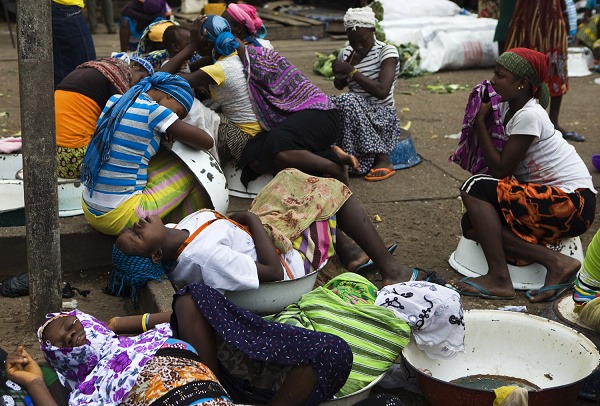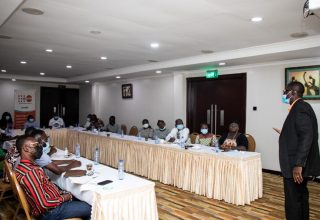
In the afternoon of Sunday, 29th March 2020, the Minister of Information and heads of other relevant national departments gave details as to what goes into the “Lockdown” announced by the President of the Republic of Ghana on Friday 27th March 2020, to take place in certain parts of the country.
According to them, all bars and night clubs are to remain closed during the next two weeks. Restaurants and other fast food joints are allowed to operate but, only ‘online’: meaning they can only make deliveries or let customers pick up their food, but no one is allowed to eat onsite. Table top vendors, like the local waakye and kooko sellers, are also allowed to operate but customers are allowed to patronise only those in their localities. Markets will also be open for market sellers who sell food and other essential items to sell to the people in their localities. On the other hand, all non-food vendors are strictly asked to stay at home during this period.
Health workers, who have already been adjudged as essential service providers, are all exempted from the lockdown and would only be required to carry a professional or Staff Identity (ID) card. They were also entreated to only give priority to COVID-19 related cases and other serious health conditions.
The media are also exempted from the lockdown, but are entreated to all carry their staff ID cards and endeavour to move around in their company-branded cars or apparel to prevent being stopped at the checkpoints.
In answering a question asked by many Ghanaians, the Minister of Information indicated that people who wished to use public toilets in the affected areas only need to prove that that is where they wish to go and nowhere else.
The representatives from the Ghana Police Service and Armed Forces reassured the general public that security services will approach the lock down with a humanitarian face, with the police in lead and support from the Armed Forces. There would be no unnecessary violence. Two thousand of their joint personnel will be in operation; there will be checkpoints all around the affected areas to ensure that all citizens are doing the right thing, air force personnel will air lift essential medical supplies, and navy will be surveying the coast, as the ports remain open for business in cargo goods. There will also be night patrols to ensure adherence, and to prevent criminal activities.
Majority of government workers are encouraged to work at home after confirming from their heads who the essential workers required to report at work are. Other exempted institutions include financial institutions like banks, manufacturing companies, and transport service providers. They are all however expected to ensure that it is only their essential workers who go to work. Commercial vehicles (i.e. the trotros and taxis) are directed to ensure social distancing in their vehicles by carrying less passengers than usual.
All these workers are encouraged to carry some identity card or their staff ID cards on them, and present same when requested by the national security services. Companies with private branded cars or buses were asked to use these in the transportation of their workers. Private security service workers are also exempted from the lock down but are required to be in uniform with an ID card.
Lastly, there will be no travels to or from the restricted areas during the lockdown, and Ghana’s borders remain closed to all human traffic.
As usual, all citizens are reminded to keep adhering to all safety and security directives, report early if they exhibit any symptoms, and provide all critical information to help in the fight against the Coronavirus Disease.
Katherine Akpe Aglobitse
Student, University of Ghana
photo@ghanaweb















